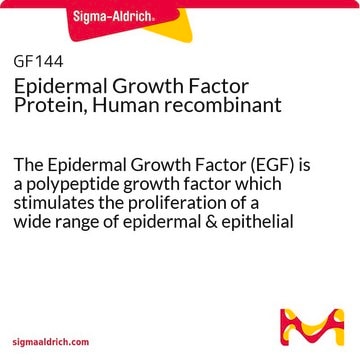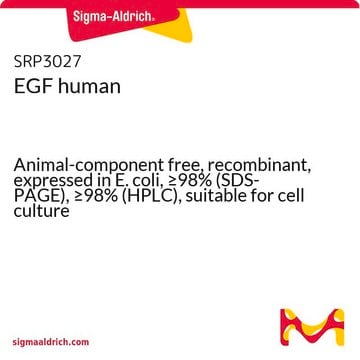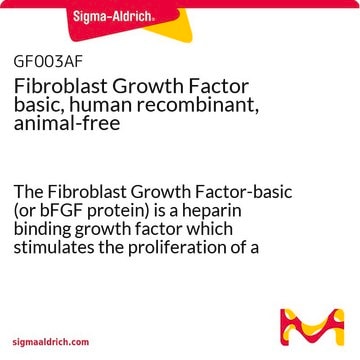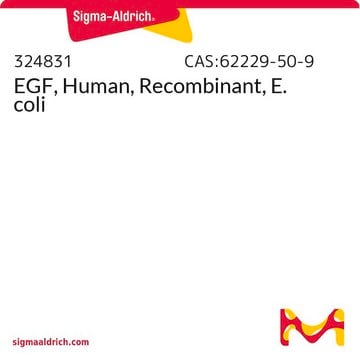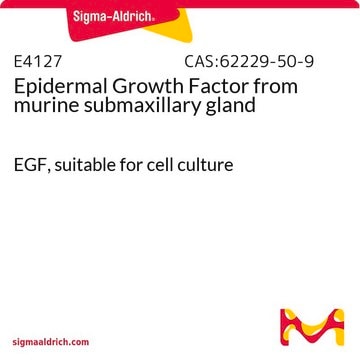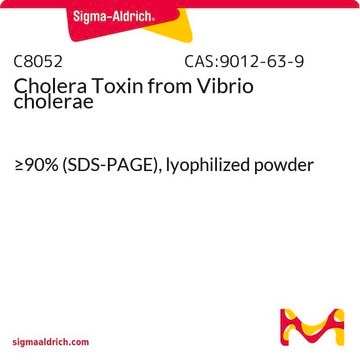GF316
EGF Protein, Human Recombinant Animal Free
This Recombinant animal free human EGF is manufactured using all non-animal reagents.
Synonym(s):
Epidermal Growth Factor, Urogastrone
About This Item
Recommended Products
recombinant
expressed in E. coli
Quality Level
Assay
>98% (SDS-PAGE and HPLC)
impurities
<0.1 μg/mg protein endotoxin (<1EU/μg)
NCBI accession no.
UniProt accession no.
shipped in
dry ice
Related Categories
General description
Specificity
Cow, Hamster, Monkey, Mouse, Pig, Rabbit, Rat
Application
Stem Cell Research
Growth Factors & Receptors
Quality
Physical form
Storage and Stability
Disclaimer
Storage Class Code
11 - Combustible Solids
WGK
WGK 1
Flash Point(F)
Not applicable
Flash Point(C)
Not applicable
Regulatory Listings
Regulatory Listings are mainly provided for chemical products. Only limited information can be provided here for non-chemical products. No entry means none of the components are listed. It is the user’s obligation to ensure the safe and legal use of the product.
JAN Code
GF316:
Certificates of Analysis (COA)
Search for Certificates of Analysis (COA) by entering the products Lot/Batch Number. Lot and Batch Numbers can be found on a product’s label following the words ‘Lot’ or ‘Batch’.
Already Own This Product?
Find documentation for the products that you have recently purchased in the Document Library.
Customers Also Viewed
Our team of scientists has experience in all areas of research including Life Science, Material Science, Chemical Synthesis, Chromatography, Analytical and many others.
Contact Technical Service